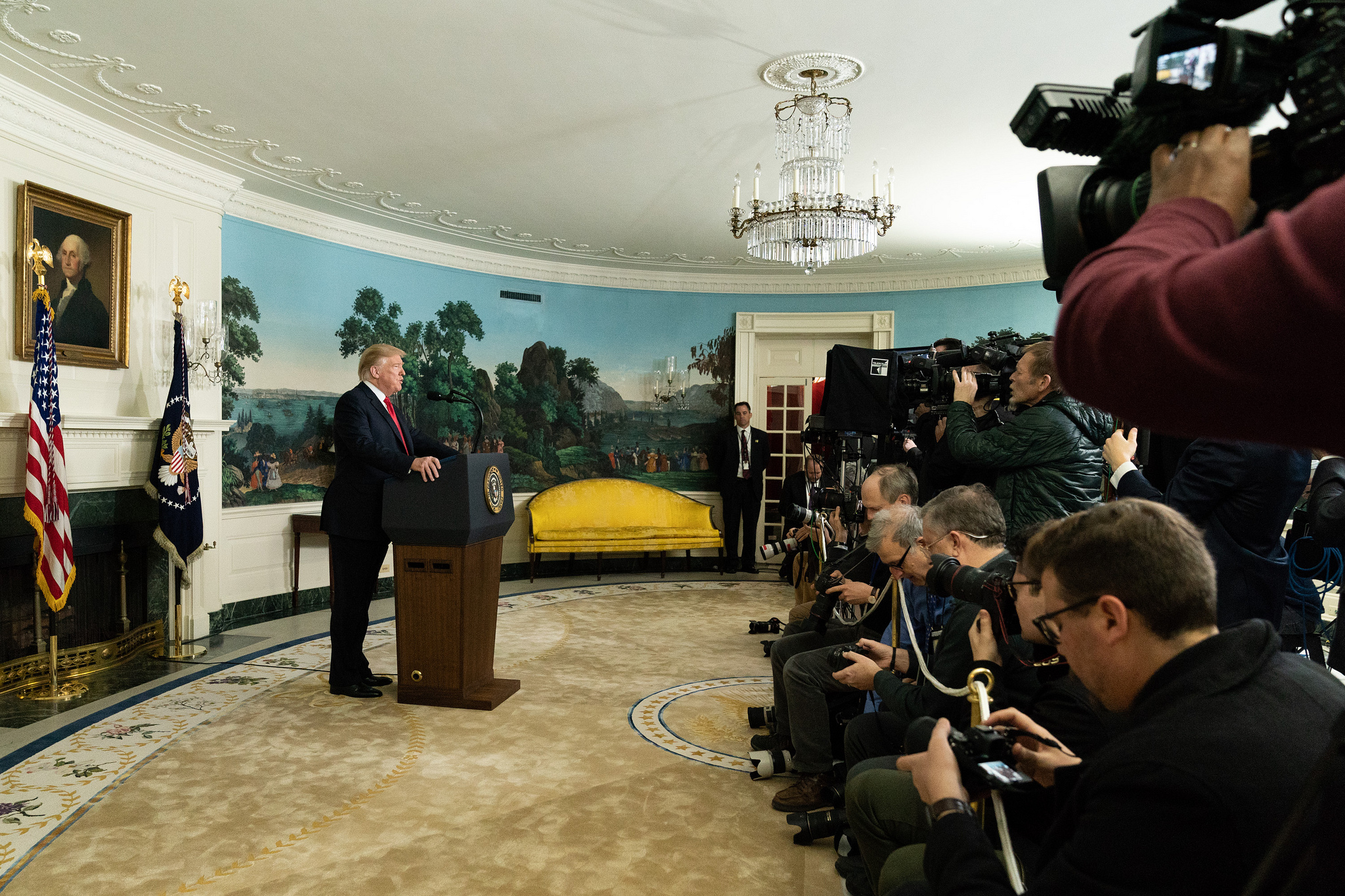Presidents are required to submit a budget to Congress annually, but those blueprints don’t tend to impact legislation. Republicans refused to even hold hearings on the last one submitted by President Obama, the first time that happened in 40 years.
The real value of a presidential budget is that it’s a statement on the administration’s policy values. On Monday, Trump submitted his latest, which Greg Sargent and Paul Waldman labeled a “horror show” when it comes to domestic issues. While the president’s budget contains crippling cuts across the board, the Washington Post journalists emphasized how it broke Trump’s campaign promise to protect Medicare, Medicaid, and Social Security from cuts.
During the 2016 presidential primary, Trump also distinguished himself from his Republican rivals by criticizing the Iraq War (which he actually supported at the time of the invasion) and garnered attention for being less inclined to use military intervention. Jack Hunter went so far as to suggest that we should thank Trump for a new movement of anti-war Republicans.
With that in mind, we can ask what this latest budget says about the Trump administration’s approach to foreign policy. As we’ve seen in his past budgets, this one increases military spending by nearly five percent—more than the Pentagon even asked for. But Derek Johnson, executive director of Global Zero, identifies something even more troubling. The proposed budget would increase spending on nuclear weapons by $12.4 billion, an 11.8 percent increase from the previous fiscal year.
Trump’s pitch for more nuclear weapons spending should surprise no one. The administration’s 2018 Nuclear Posture Review — the cornerstone of its nuclear policy — seeks to move the United States closer to nuclear warfighting with new weapons and looser restrictions on use. Trump’s nuclear agenda is underpinned by myths of ‘controllable escalation’ and ‘winnable nuclear war,’ as well as a profound misunderstanding of America’s bloated nuclear arsenal, which easily matches Russia’s and is more than four times larger than the rest of the nuclear-armed nations’ combined.”
The top national security priority of the United States should be preventing the use of nuclear weapons. The Trump administration’s accelerated pursuit of ‘low yield’ nuclear weapons does the opposite. You might imagine a ‘small’ nuclear weapon is a safer nuclear weapon, but that’s not how this works. What’s uniquely dangerous about ‘low-yield’ nuclear weapons is that they’re more tempting to use in a conflict. Keep in mind that a single ‘low-yield’ nuclear weapon detonated over the White House would kill 100,000 people and injure 125,000 more. It would be 2,500 times more destructive than the device used in the Oklahoma City bombing. These weapons are not normal and they certainly are not ‘small.’
Over the course of the last couple of years, the president has said some alarming things about the use of nuclear weapons. Joe Scarborough once reported that he repeatedly asked a foreign policy expert what good nukes were if we didn’t use them. This is the area where Trump’s delusions and self-imposed ignorance pose the most significant threat.
On the other end of the spectrum, the president’s budget cuts State Department funding by $13 billion, or 23 percent, which is just fine with Secretary of State Pompeo. That comes on the heels of this:
Two years after his election, the president still hasn’t nominated ambassadors to two of the most important U.S. allies in the Middle East, Saudi Arabia and Turkey—as became apparent after the murder of the Saudi journalist Jamal Khashoggi in Istanbul.
There’s no U.S. ambassador in Mexico, our troubled neighbor to the south. No ambassador in nuclear-armed Pakistan, arguably the most dangerous country on Earth. No ambassador in Egypt, the most populous country in the Arab world. No ambassador in Jordan, a vulnerable ally sandwiched between Syria and Israel. No ambassador in South Africa or Singapore.
In 18 countries including those, the White House hasn’t even designated anyone for the job…And those numbers don’t count special envoys or representatives at international organizations who carry the rank of ambassador.
The overall result: Almost half of the top-level jobs in the State Department are still empty almost two years into the administration.
To the extent that a budget is a reflection of policy values, Donald Trump’s shows that he wants more nukes and less diplomacy. That is also a recipe for a horror show.



